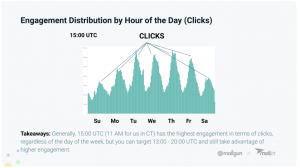
PR and digital marketers frequently consider engagement a key social media metric. Yet some believe online engagement is faltering. Fewer brands engage with followers, they assert.
Very few companies, typically larger brands, dedicate the staff for extensive engagement. Wendy’s tweets are an exception. Even JP Morgan, a huge financial services company, gains few responses on Twitter, as a glance at its feed shows, as Arik C. Hanson, principal of ACH Communications, points out in his marketing and communications blog. It treats Twitter as a broadcast channel. Accenture, a large B2B brand with over 300,000 followers, elicits little response on Twitter.
Trolls, the 2016 Election, and general declining interest in online conversations may be to blame for the decline in engagement. Online publications are closing comments sections on articles. In a most recent example, Vice shut down its comments section, blaming an overabundance of trolls. Publications say they’re moving conversations to social media, but those conversations are now also increasingly dominated by hyper-political debates, personal attacks and hate speech.
Winning Engagement is Challenging for Brands
Sparking engagement is more difficult for brands. Comments and shares have dropped. At their best, comments provide meaningful input, spur conversation, and provide feedback. Shares, the best form of engagement, help spread the brand’s marketing and PR message. Likes, the lowest form of engagement, barely qualify as significant engagement. If comments and shares disappear, brands will be left with very little else, Hanson warns.
Hanson relies on personal observations and lacks hard data. Others have complained of an increase in derogatory comments, especially during the presidential campaign. People may be sharing posts, but share only with people they agree with in their own networks.
Marketers have differing views about the importance of engagement as a social media metric. Some argue engagement indicates the quality of content and the effectiveness of the brand’s marketing more realistically than number of followers.
Even Likes Count
Even the number of likes matter because consumers believe the popularity of a product correlates to its quality, says Lesya Liu, social media strategist at The Social Media Current. “We as entrepreneurs also look at the like counts as a metric for reputation of the company and as a metric for effectiveness of social media marketing efforts,” Liu writes in Entrepreneur.
However, engagement is not the ultimate business goal, only a tactic to produce leads, clients and sales. Like any other business activity, engagement entails costs and resources that must be balanced against results. The key to success is determining how engagement helps you reach your business goals.
Engagement must be linked to business objectives. Engagement is only a tool, one that’s not extremely valuable on its own unless it’s tied to a measurable goal. Those goals can be customer acquisition, product development, customer service or brand awareness.
Bottom Line: Engagement may be falling out of favor as a social media metric. Trolls and declining interest in online conversations may be putting a damper on engagement. Some brands may place a low priority on engagement, and instead use social networks as a broadcast channel. Many marketers tout the benefits of engagement, saying it can accurately measure marketing success. The key is to link engagement with bottom-of-the funnel metrics.
This post was originally published on the Glean.info blog.
Digital & Social Articles on Business 2 Community(55)









